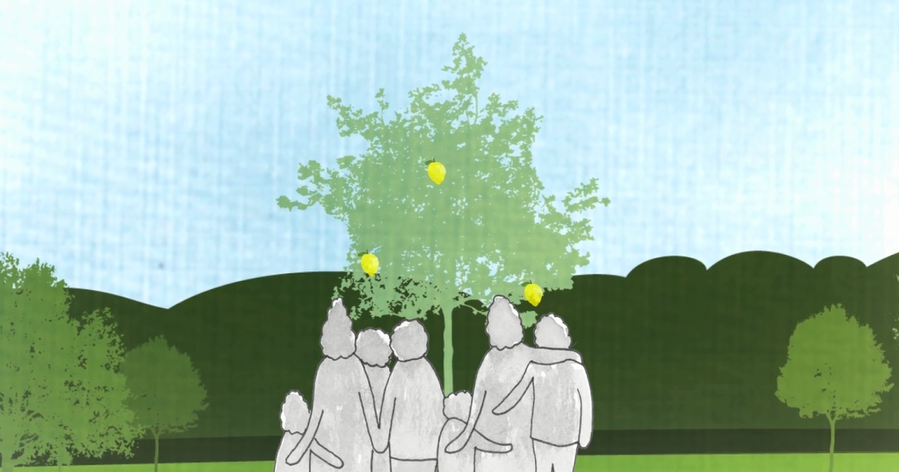Ashes to ashes, dust to dust, call it morbid or call it brilliant, but Katrina Spade, the founder of Urban Death Project is presenting the world with an alternative to conventional burial or cremation after death.
Most people don’t think of burial as sustainable or unsustainable. We don’t consider the cement that is used to line the grave, the wood that is used to construct the casket, the land that is designated to forever house the bodies of deceased loved ones. But, when you add up all those “practical” pieces, the impact is quite substantial.
“Each year we bury enough metal to build the Golden Gate Bridge, enough wood to build 1800 single family homes, and enough embalming fluid to fill eight Olympic size swimming pools. Cremation . . . burns fossil fuels and emits about 600 million pounds of carbon dioxide into the atmosphere, annually,” explains Spade in her Kickstarter video, “The very last thing most of us will do on this Earth is poison it.”
Ouch.
So, what is her alternative?
Spade gathered engineers, architects and soil scientists together to create another way. Her team has designed a public space that can be used to turn the human body into nutrient rich compost. The space doesn’t disregard the important moments of saying farewell and gathering to celebrate or remember a life, it is designed to allow people to be intimately involved in the passing of the body back to the earth. “Death is a mysterious and momentous human event,” says Spade, “It deserves to be marked by ritual, ceremony and meaning.”
The space doesn’t neglect the contemplative component of visiting a loved one’s grave after they have passed, either, but welcomes people to meditate on the cycle of life that we all take part in by visiting and enjoying what grows fed by the compost. “Eventually, you could be a lemon tree,” Spade says.
The Urban Death Project is still in preliminary stages. Spade doesn’t expect the first working space, which is planned for Seattle, Washington, to be built for another two years. They are already ensuring it is scalable by designing a complementary toolkit that will guide other cities through the process of creating a space where people can offer their loved ones back to the Earth. Ashes to ashes, dust to dust.
Would you want your body to go to compost after you die? Talk to us @StarterNoise using #FutureTree


